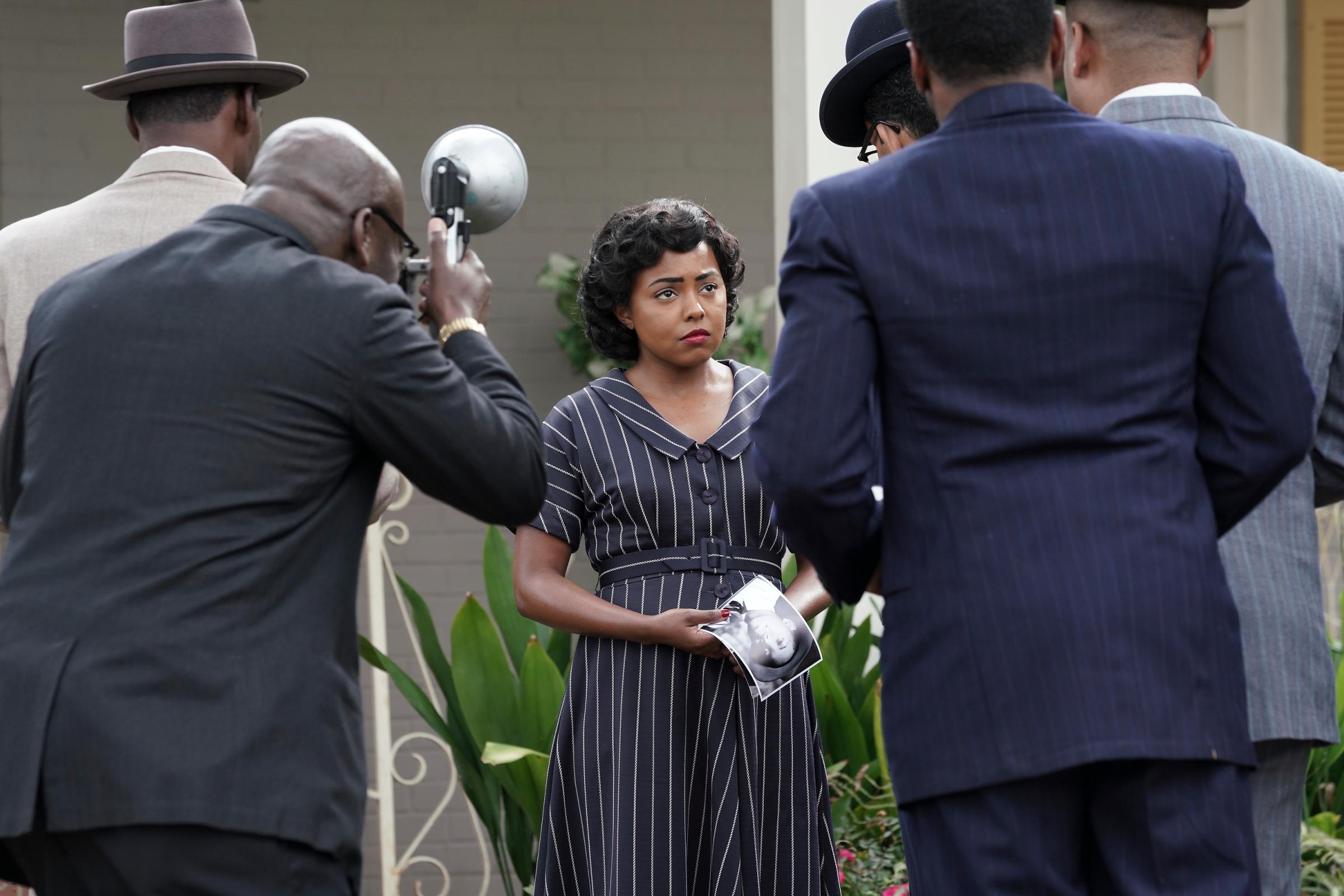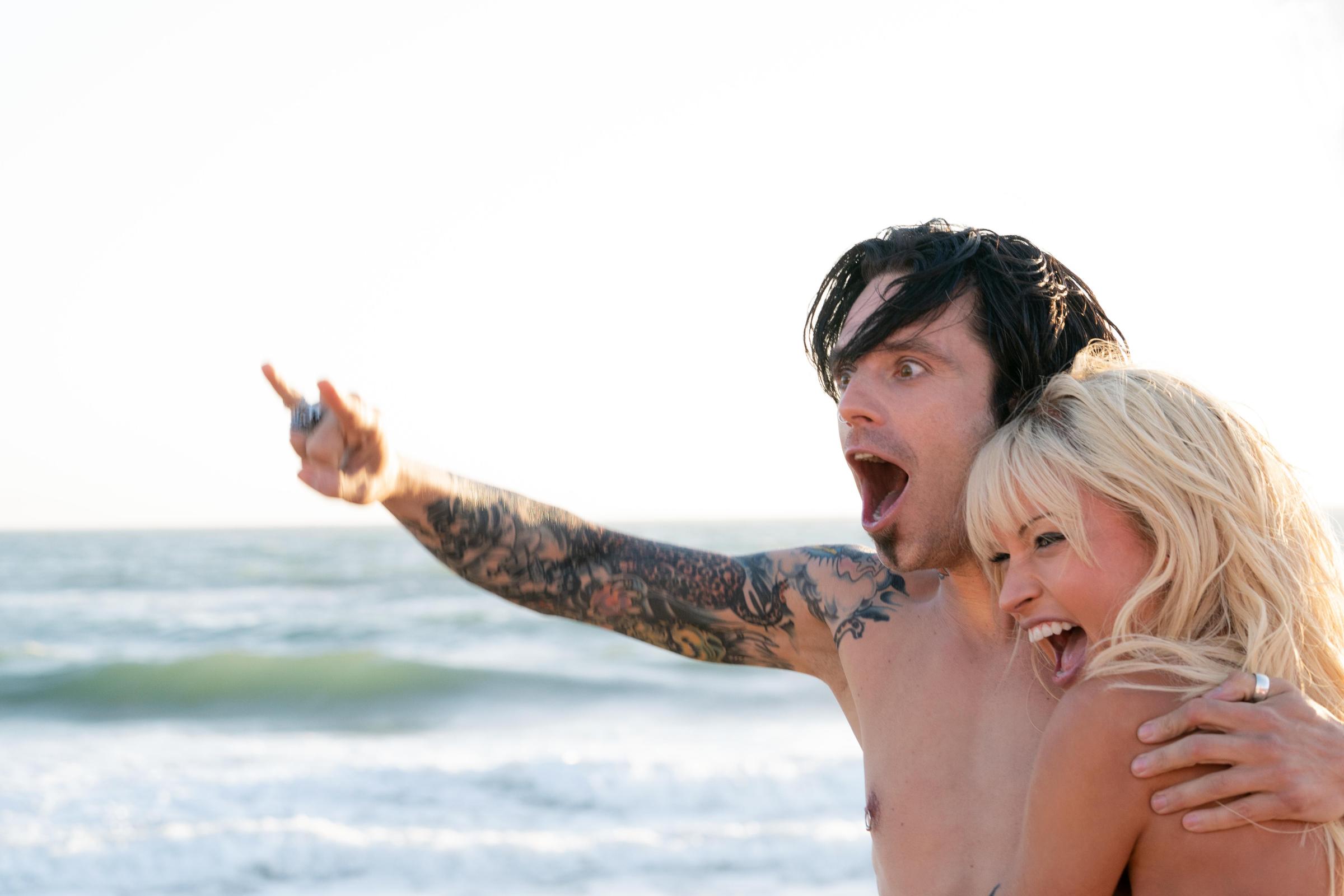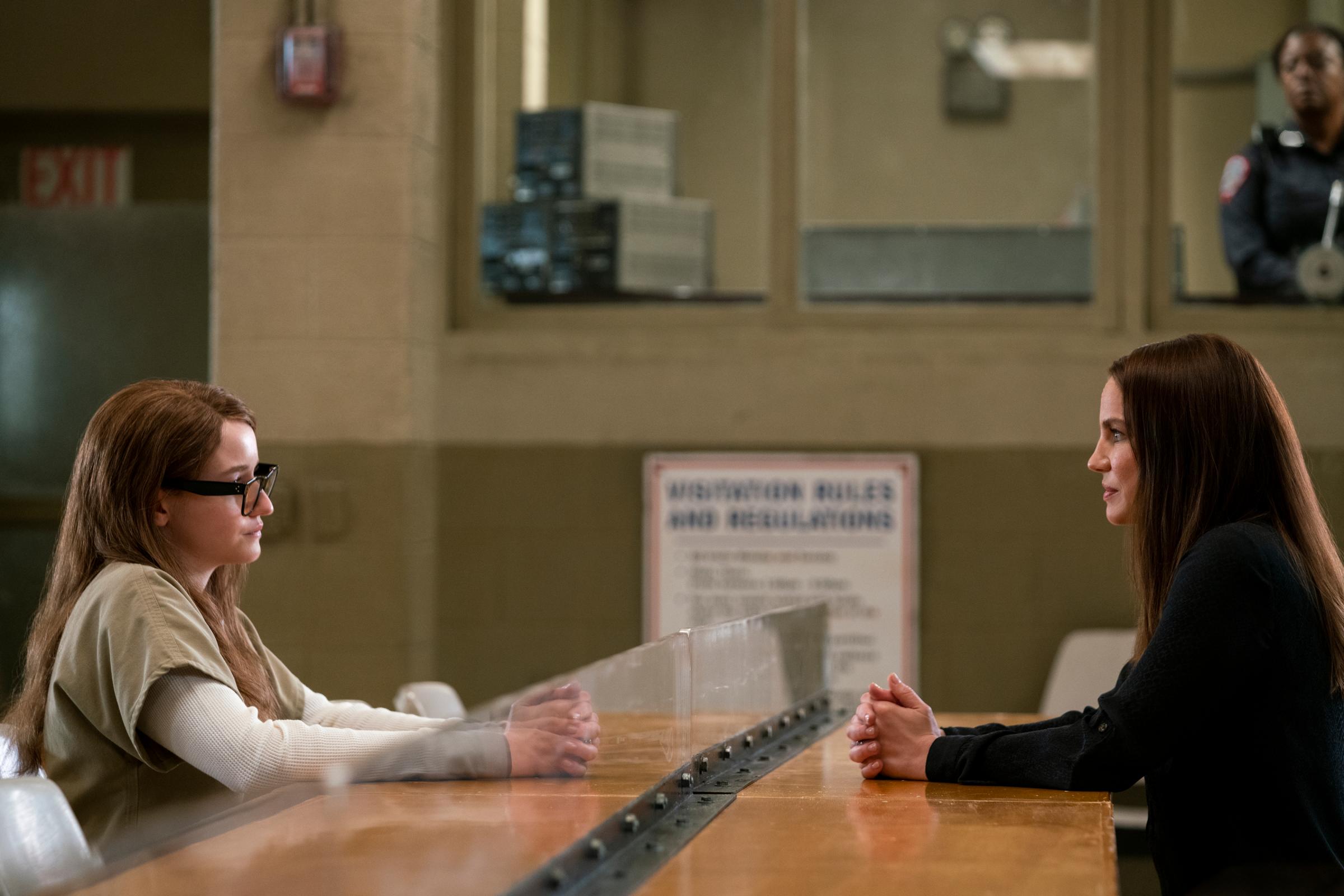
There is a scene in Showtime’s new docudrama Super Pumped: The Battle for Uber where irascible Uber co-founder Travis Kalanick is trying to talk Mark Cuban into investing in his soon-to-be-notorious startup. It’s 2010, a year before the app’s public launch, and the Dallas Mavericks owner is skeptical.
“I am not gonna invest in a company where you have to raise hundreds of millions of dollars to do tens of millions of dollars in revenue,” Cuban tells the younger entrepreneur, shutting down Kalanick’s hyperactive sales pitch with his own no-nonsense, alpha-male energy. Furious at the rejection, Kalanick warns his would-be benefactor that if he turns down the opportunity to invest in Uber now, he’ll never get another one. Cuban passes.
Some version of this exchange did take place during Uber’s infancy; by 2014, Cuban was looking back on the decision as “probably my biggest mistake [in] investing.” But it’s hard to tell just how true the scene is to what actually happened. In a casting choice that’s reflective of Super Pumped‘s metafictional style, Kalanick, like most of the characters, is portrayed by an actor—Joseph Gordon-Levitt, going all-out in every take—while Cuban appears as himself.

Such blurring of fact and fiction is endemic on TV these days, thanks to a spike in the production of docudramas, many of which center on larger-than-life newsmakers. Along with Super Pumped (premiering Feb. 27), 2022 has already brought ABC’s civil rights drama Women of the Movement, Hulu’s sex-tape saga Pam & Tommy, and Shonda Rhimes‘ Netflix miniseries on the rise and fall of “Soho Grifter” Anna Delvey, Inventing Anna. Hulu is getting ready to unveil its Elizabeth Holmes portrait The Dropout on the same day, March 3, that Peacock drops Tiger King retelling Joe vs. Carole. Before the spring is out, we’ll also have docudramas on WeWork (Apple’s WeCrashed), the ’80s Lakers (HBO’s Winning Time), killer Pam Hupp (NBC’s The Thing About Pam), Michelle Carter’s texting-suicide case (Hulu’s The Girl From Plainville), Watergate (Starz’s Gaslit), and the making of The Godfather (The Offer on Paramount+).
As tends to be the case in the current, streaming-driven era of rampant programming overlap that I’ve been calling peak redundancy, there are too many of these shows, covering too many of the same subjects: tech, scammers, crime, sexual politics. With effects-heavy franchises starting to crowd out realism on the small screen, as they’ve already done in movies, docudrama has become the genre of choice for platforms looking to combine the character-driven storytelling of prestige TV with enough brand recognition to guarantee an audience. It’s a shrewd choice, financially. Creatively, however, the returns are already diminishing. And at a time when misinformation keeps sowing confusion over what is fact and what is fiction, the prevalence of docudramas threatens to further muddy the distinction.

The prototypical TV docudrama is a salacious, slapdash affair—a ’90s Lifetime movie, maybe, about a famous woman’s scandalous life. Ryan Murphy‘s FX anthology American Crime Story renovated that down-market model in 2016, with a debut season adapted from Jeffrey Toobin’s The Run of His Life: The People v. O.J. Simpson. While its subject was as crass as anything a cable channel might rip from the headlines, the show telegraphed prestige. Name actors Cuba Gooding Jr. (as Simpson), Sterling K. Brown, Sarah Paulson, John Travolta, Courtney B. Vance, and Nathan Lane anchored the cast. Instead of simply re-creating the media maelstrom that surrounded the O.J. trial, ACS re-examined it, applying progressive analyses of gender, race, and tabloid culture to maligned figures like Marcia Clark and Christopher Darden. A ratings smash, the season also won nine Emmys, including Best Limited Series and awards for Brown, Paulson, and Vance.
Since then, Murphy has embraced the docudrama, in ACS and beyond, amending our cultural hindsight on notorious names from Monica Lewinsky to Halston. For almost all of these projects, the megaproducer continued to stunt-cast top actors, lean heavily on a nonfiction book for source material, and filter the past through a revisionist lens. This formula—which arrived on time for an industry-wide shift toward the miniseries, an ideal format for true stories with defined endings—proliferated from cable to broadcast, but especially among the warring platforms of streaming.
Six years later, the docudrama has become ubiquitous. Even NBC’s stodgy Law & Order launched its own true-crime anthology, with a season on the Menendez brothers starring Edie Falco. And why not? Docudramas are magnets for A-list actors. From Michelle Williams in Fosse/Verdon to Ewan McGregor in Halston, portraying a real person with an extraordinary story is now understood to be as quick a route to the Emmys as it is to the Oscars. And the more crowded the marketplace gets, the more it helps to center a show on a topic that already has a foothold in the public discourse. What’s likely to draw a bigger audience—a great series about a fictional tech startup or an OK one about an app used by millions of people around the world every day?

I don’t mean to imply that all, or even most, docudramas are cynical branding exercises. There have been some great ones in recent years, from HBO’s devastating Chernobyl to Netflix’s When They See Us, for which creator Ava DuVernay recruited a cast of talented young actors to revisit the story of the Central Park Five. Mrs. America, FX’s look back at ’70s feminism and its discontents, used its all-star ensemble (with big names like Rose Byrne, Uzo Aduba, and Tracey Ullman supporting a mesmerizing turn from Cate Blanchett as Phyllis Schlafly) as far more than a gimmick.
These standouts have given us new perspective on current and historical events in a way that only fiction can. Whether it’s The People v. O.J. Simpson spending a full episode on what it felt like to be Clark, a public servant who became a tabloid punch line overnight, or Netflix’s Unbelievable weighing the impact of a botched rape investigation on a teenage victim fresh out of foster care, these shows draw out human elements of stories that viewers previously couldn’t or didn’t want to acknowledge. They also make connections to the way we live, and the way society functions, in the present. Too quirky to be a masterpiece, Inventing Anna at least builds a provocative argument about the title character—that she was more failed hero than sociopathic villain—while putting wealth and the transactional nature of so many interpersonal relationships under a microscope.
Yet for each docudrama with something to say, there are several more (see: Showtime’s The Comey Rule, Hulu’s Dopesick, Netflix’s The Serpent, Bravo’s Dirty John) that function as audiovisual Wikipedia pages, overflowing with names, dates, and statistics but light on narrative. Others, like Pam & Tommy, bungle their attempts at socially conscious revisionism so badly that after six or eight episodes, they abruptly end without arriving at a meaningful conclusion. And the few that aren’t indifferent to style can be astoundingly derivative. Super Pumped treads the fine line between bro-friendly entertainment and bro-critical satire, racking up a major debt to Adam McKay and Aaron Sorkin.

You could argue that at least the new wave of docudramas is educating viewers about current events and recent history. The thing is, most just rehash stories that have already been widely consumed in a different format—or three. The Dropout, based on a podcast and notable for Amanda Seyfried’s sensitive portrayal of Holmes’ strangeness, follows a best-selling book, John Carreyrou’s Bad Blood, and a buzzy HBO doc, The Inventor; Apple is developing a feature-film adaptation of Bad Blood from McKay and Jennifer Lawrence. (Then again, The Dropout seems downright necessary compared with Joe vs. Carole, a restaging of a docuseries that existed purely to gawk at weird tiger people.)
Despite performances that can be thrilling to watch, in 2022, docudramas’ overlap with nonfiction storytelling poses a more troubling threat than mere redundancy. From fake news to irresponsible punditry, misinformation has proliferated on our TV screens as well as in our social media feeds and podcast queues. Inventing Anna obliquely acknowledges this, opening episodes with a disclaimer: “This whole story is completely true. Except for all the parts that are totally made up.” The tone might be cheeky, but the transparency is refreshing.
It would be unfair, and bad for TV as an art form, to expect scripted shows to stick to the truth. But given the increasingly slippery boundary between fact and fiction, the current outpouring of docudramas still seems bound to chip away at our collective understanding of how real events happened. Who among us hasn’t cited a tidbit about the British royals, only to realize it came straight from The Crown? The more fiction dilutes our perception of reality, the more vulnerable our fragile historical record is to bad actors. And I don’t just mean hams.
With reporting by Simmone Shah
More Must-Reads From TIME
- What Student Photojournalists Saw at the Campus Protests
- How Far Trump Would Go
- Why Maternity Care Is Underpaid
- Saving Seconds Is Better Than Hours
- Welcome to the Golden Age of Ryan Gosling
- Scientists Are Finding Out Just How Toxic Your Stuff Is
- The 100 Most Influential People of 2024
- Want Weekly Recs on What to Watch, Read, and More? Sign Up for Worth Your Time
Contact us at letters@time.com